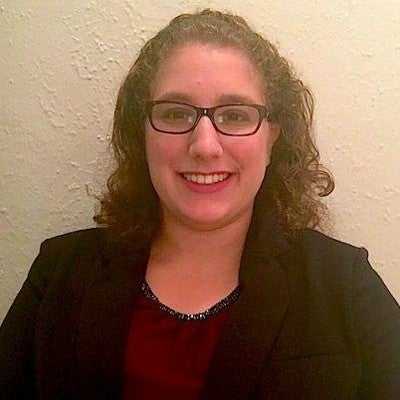As part of Case Western Reserve University’s Women in Tech Initiative, we spoke with graduate student Arielle Bloostein about her pathway to a career in computer science. She shares how she landed opportunities at Audible, Amazon and Google while simultaneously working on her master’s degree in Computer Science.
Tell us how you came to study computer science at CWRU.
I was studying pre-med and psychology. Along that way I ended up taking a computer science class, and it really clicked. When I finished my undergrad degree, I didn't really know that I still wanted to be a doctor, so I took some time off and started to think about it. I ended up applying to a master's program in computer science. I had the opportunity on campus to work at the Statistical Research Computing and Collaboration Center. With that I did a natural language processing project for the VA and their spinal cord injury center, and that kind of catapulted me into being able to apply for other opportunities.
When it came to starting a career, I felt very behind my peers, but I kept pushing forward, trying to get as many opportunities as possible. I attended conferences like the Grace Hopper Celebration. I also attended the Computing Research Association's Widening Participation Conference. Through those events I met other people who, even though they had backgrounds in computing, they also felt lost or that they weren't prepared to go into industry.
A big part of overcoming that was trying I not to be afraid, applying for everything, and trying to make the most out of every opportunity I saw in front of me.
At the Grace Hopper Celebration I spent a lot of time in the career fair. Through that experience I got my first internship at Audible.
What were the next steps in your trajectory?
After that I received an offer for a full-time position in Seattle, then due to some changes, they no longer could give me an offer in Seattle. They told me I could be on the East Coast, but my partner is located in Seattle, so I really wanted to get myself to Seattle. To do that, I spoke to the team at Audible and was able to get my offer transferred to an Amazon offer because they're an Amazon company.
It was definitely a difficult process and something that isn't usually done, but it was something I was able to accomplish by asking. If you ask, the worst you can hear is ‘no.’
As an intern at Audible, I worked on creating fuzz testing for Audible on Alexa. For example, if you were to say, ‘Please play me Harry Potter book one,’ we tested if it’s going to play Harry Potter and the Sorcerer's Stone. Or if you mess up the name and call it “the Philosopher’s Stone,” we made sure it isn't lost in translation.
At Amazon I worked on a lot of heavy back-end work called job run orchestration.
Now, at Google I work on a specialized team called an EngProd team, which is engineering productivity. So my team builds infrastructure and tools to help the team we work with be more productive. There are 10 of us engineers supporting 250 engineers. When they're struggling, things aren't running correctly or there's a breakdown in infrastructure, we rebuild it or we fix it.
My thesis is in machine learning. Specifically, we're looking at skill atrophy and skill acquisition with machine learning models. For example, Duolingo uses machine learning to help you learn to speak another language. Our question is, does that help? Does the machine learning aspect help or does it hurt? Similarly, I'm exploring pilots using autopilot. Does it make their skill set go away?
After I complete my thesis and wrap up my master’s degree, I'm hoping to stay in the same role.
Video interview:
To watch Arielle's video interview, click here.


